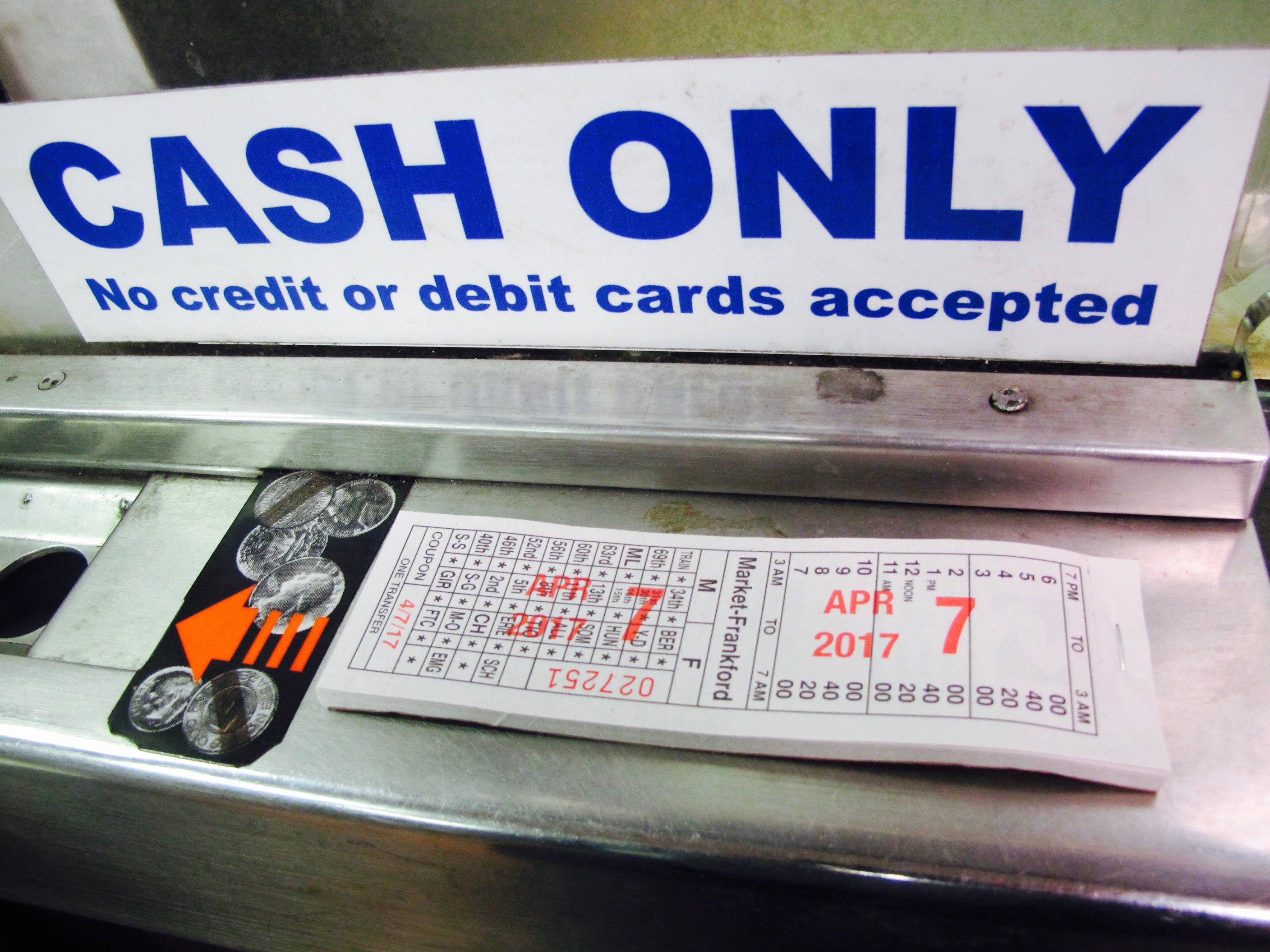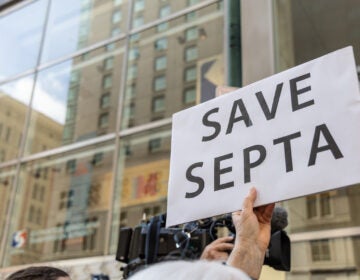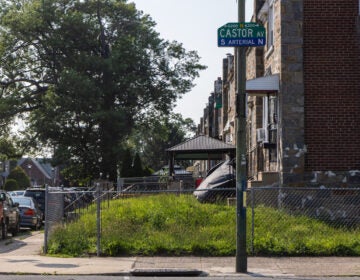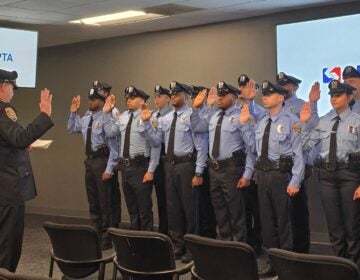SEPTA resists petition to end transfer fees

With SEPTA Key’s long-anticipated arrival on the region’s buses, subways and trolleys finally here, some riders think it’s time for SEPTA to update another part of its fare system: transfers.
5th Square, an urbanist political action committee, has circulated a petition urging SEPTA to drop the $1 transfer fee riders pay when switching from one form of mass transit to another. With a modern fare card, SEPTA can now process a transfer automatically — no need to ask an employee for a paper transfer slip — deducting $1 off a SEPTA Key cardholder’s account instead of $1.80 ($2 once fares go up in July). Making that process free would be relatively easy, 5th Square argues, so why not?
Money is why. SEPTA processed around 12 million paper transfers last year, meaning transfer fares made up around 2.5 percent of total passenger revenues ($470,445,000). While that may be a relatively small slice of SEPTA’s income, SEPTA Deputy General Manager Rich Burnfield said, “Twelve million is a significant amount for the authority.”
The petition has garnered around 1,100 online signatures, plus about 400 more by hand, said Jake Liefer, a 5th Square co-founder. “The problem is it adds additional fees, particularly to low-income riders who are often taking multiple routes to get to their destination,” said Liefer.
“It’s an unfair burden and its causing riders to take longer distance trips when it can be more efficient both for SEPTA and the rider to create and use multiple linked trips.”
For most regular SEPTA riders, the transfer policy doesn’t matter. In February, just 31 percent of SEPTA transit riders used cash or tokens (or their SEPTA Key equivalents), with the rest using passes. It’s “discretionary” riders — those who only take the subway or bus when their car is in the shop or it’s too rainy to ride their bike — who have to deal with transfers.
SEPTA isn’t dismissing the idea of dropping $1 transfer fees entirely, said Burnfield. The authority just wants to study the idea more first, and the more precise ridership data provided by SEPTA Key will help. With SEPTA Key, the transit authority’s planners should be able to see where all riders — regardless of how they pay — transfer.
With the better ridership data, Burnfield said SEPTA will take a comprehensive look at its entire fare system, including transfer fees. But because they can’t say with enough certainty how ending the fees would impact ridership or revenues, Burnfield said SEPTA wasn’t ready to make major fare policy changes just yet. One concern: Some riders who currently use passes might switch to using SEPTA Key’s travel wallet, and once they do that every new trip will cost a bit more, so they might ultimately ride less.
SEPTA Key’s rollout may also lead to more transfers being recorded: When riders tap their Key card within 90 minutes of their last boarding, it will count as a transfer. For many riders, the hassle of making their way to the front of the bus or to the fare kiosk to buy a $1 transfer ticket — exact change only! — wasn’t worth the 80 cents in savings compared to another token.
SEPTA already has some free transfers: switching between the Broad Street Line and the Market Frankford Line at City Hall is free, as are transfers between the Route 23 and Route 45 bus.
In 2012, the Delaware Valley Regional Planning Commission (DVRPC) released a report encouraging SEPTA to give the idea of free transfers a try. The DVRPC report thought free transfers could encourage stodgy old riders stuck in their ways to pick up the new fare cards. SEPTA could “offer free transfers for passengers who have adopted an NPT fare instrument [SEPTA Key] but discontinue all other single-trip transfer discounting,” the report’s authors wrote. “This is the most common approach among peer large transit agencies with smart-card fare instruments.”
Free transfers are seen as a way of encouraging more ridership, especially among the discretionary riders. SEPTA has seen its discretionary ridership decline recently and invited transportation planning consultant Jarrett Walker in December to workshop ridership boosting ideas, which include getting rid of transfer fees.
SEPTA will hold five public hearings at locations across the five-county region April 19-25 on the tariff changes, as well its budget.
WHYY is your source for fact-based, in-depth journalism and information. As a nonprofit organization, we rely on financial support from readers like you. Please give today.






